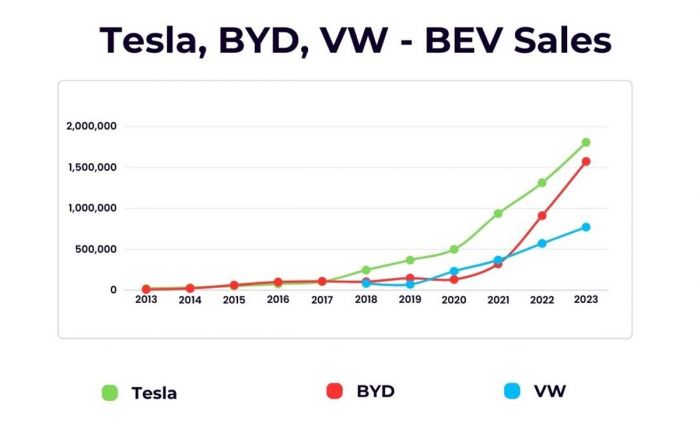Volkswagen is certainly not the most successful car brand on the American market, at least when it comes to gas-engine-powered vehicles. Although its recent ID-series EVs enjoy a lot of success, older gasoline models are still available and they even get some new versions, facelifts, and even new engines.
Today, we'll focus on the 1.5 TSI engine that powers the new Volkswagen Jetta in the US and is actually the only engine option for this model on the market now. You may not like the TSI family of engines, but when it comes to the most recent 1.5 TSI, you shouldn't make quick conclusions and automatically think it's as bad as the earlier 1.4 TSI version. Let's get deeper into this!

Key features and my opinion about the engine
- Production years:2017-now
- Average lifespan of 1.5 TSI:140,000-160,000 miles
- Fuel supply type:direct injection
- Power range:130-158 hp
- Fuel efficiency:excellent
- Engine block material:aluminum
- Engine reliability score:low
- The most common problems:very demanding to fuel quality, the turbocharger is potentially weak, low RPMs lead to jerking, ACT may cause issues at high mileage.
What will you want to know about the 1.5L TSI in the Jetta?
So, this is the only available engine for the Volkswagen Jetta, so if you are thinking about this compact sedan model, you will have no choice. The engine is one of the versions of the many EA211 series turbo engines and it's basically identical with European versions and models in some other markets, although they may have different engine codes and different designs of plastic top covers.
First of all, we should say that this engine got many more positive reviews than the previous 1.4 TSI model thanks to lots of improvements in the construction of the powerplant. Engineers finally learned their lessons and started doing something good. OK, this is most likely the last pure-gasoline VW engine, so take your chance to jump in if you still want this technology.
Here are some of the key features of the engine:
- this is the 1.5-liter EA211 Evo all-aluminum engine that offers 158 horsepower and 184 lb-ft of torque which is quite a lot, to tell you the truth;
- the engine is equipped with a turbocharger and its power and torque are available pretty early which makes it a lot of fun to drive the Jetta;
- you can choose a six-speed manual transmission, but you will most likely want the 8-speed automatic transmission (finally, a good gearbox, not the dual-clutch one);
- the engine has a direct injection system, phasers on both camshafts, and the timing system is driven by a belt;
- the engine has the ACT technology, so it can turn off two cylinders and basically turn your engine to inline-2, what a ridiculous thing to know;
- the fuel consumption is just great - the engine will achieve 29 MPG in the city and about 42 MPG on highways - almost like modern full hybrids.
There is nothing much we want to tell you here about because the engine is more or less simple in its design and technologies. If you want to deepen your knowledge of how the VW injection or turbo systems work, find it in specialized forums. We will try to focus on more driver-friendly facts and things.
We like what we see when we are looking at this engine. Its technologies are a little easier to understand than the ones in the previous versions of the turbo engines by VW. Also, we love the gas mileage, the new wonderful automatic transmission, and the price for all of these. You can get the cheapest version of the Jetta with a manual transmission for about $20,000!
How many miles will this engine last?
The 1.5 TSI engine in the new Volkswagen Jetta is said to last about 160,000 miles. This is a little above the average lifespan for small turbocharged engines that are currently on offer on the market. So, most of the competitors will have a shorter life expectancy and this is good news for Volkswagen fans.
But we should warn you that achieving this longevity is not that easy. You will need to provide your engine with a lot of TLC to let it run for 10 and more years. The first 1.5 TSI engine was presented in Europe approximately 6 years ago and we can see that they go more or less 160,000 miles before they need serious repairs or replacement. American roads haven't seen a lot of these engines, so the stats can't be investigated well here.
During 160,000 miles, you will have a couple of minor issues with this engine that will require immediate reaction. If ignored, every minor problem with the 1.5 TSI engine can quickly grow into a major issue and even into a total engine failure.
We've also decided to make a list of some common issues that may happen with this engine to help you prevent them.
What are the common problems with the 1.5 TSI engine in the Jetta?
Some mechanics that we tried to talk to just didn't know that Volkswagen sells the 1.5 TSI engine in the US. So, we understand that this is not the most popular powerplant in the country now. But we've looked into European records and found quite a lot of useful information about this engine in terms of its common issues.
Here they are:
1. Turbocharger failure up to 70,000 miles
A lot of reports about the turbo failure make us think they are a little defective. Well, they are still better than in the first versions of the 1.4 TSI but not really perfect. The VW warranty covers 50,000 miles and then you will start getting first problems.
One of the worst things about the Volkswagen turbos - they are hard and expensive to repair. One of the most common reasons for this problem is the wrong type of oil. Keep an eye on that and better buy OEM Volkswagen oil from the dealer.
2. Kangaroo effect
This works for manual transmissions mainly, but we've seen reports from owners of cars with 8-speed automatic trannies, too. According to forums, this happens when the engine oil is topped up to the maximum level. The engine jerks when you try to start driving after a full stop. When you are releasing the clutch or depressing the brake pedal, the car like jerks once or twice and then keeps going.
Volkswagen said this happens because of faulty software and they made some updates for car owners. But we still see reports for newer vehicles in Europe about the same problem. So, if you notice it, don't ignore the issue and go to the dealer. Otherwise, you will spoil the engine mounts and some other parts, too.
3. Oil consumption
All TSI engines burn some oil but the 1.5 TSI is probably a record holder. If you are afraid that the engine is faulty and you come to the dealer, the mechanic will just tell you that it's OK for these engines to drink up to 1 liter of oil per 1,000 miles which is ridiculous for small engines.
We believe there is a little defect with valve seals that makes some engines burn more oil because not all owners of cars with the 1.5 TSI report oil consumption issues. But you should surely have a look at the dipstick regularly.
4. Timing belt issues
We haven't found official recommendations for timing belt replacement interval and the VW dealer we contacted for this just didn't answer our request. Some mechanics though say that Volkswagen says the lifebelt is there for the lifetime of the engine. Some others say VW orders to replace it every 80,000 miles. Either option is deadly dangerous.
Your timing belt is OK for about 40,000 miles and should be replaced after that. Yes, it's a little expensive in these engines, but better do this than repair the valves in your TSI engine when the timing belt jumps or just breaks.
What can I do to prolong the life of the 1.5 TSI engine?
Although some problems, like long warming up or vibration at idle, can't be solved, they don't affect the durability of your engine directly. If you use the VW 1.5 TSI EA211 Evo engine carefully and provide it with all TLC you can, it will live much longer than you expect.
Here are some tips to follow if you want to drive your Jetta for more than a decade:
- always warm up your engine at least for 1 minute before you drive;
- keep the oil level in your engine right in the middle between MIN and MAX marks;
- buy only OEM filters and fluids to let your engine and turbocharger run in optimal conditions;
- don't abuse this engine - it feels sporty but it's not made for sport at all;
- avoid overheating at all costs - this is the worst nightmare for the 1.5 TSI.
We don't see any reasons why you can't expect this 1.5 TSI engine in the new Jetta to last over 200,000 miles if you follow these simple maintenance steps and use it carefully. The engine is pretty good - much better than all other small turbo engines on the market. It's still worse than the old good 1.8 TSI but, unfortunately, you don't have this option for the new Jetta now.
About the authors
The CarAraC research team is composed of seasoned auto mechanics and automotive industry professionals, including individuals with advanced degrees and certifications in their field. Our team members boast prestigious credentials, reflecting their extensive knowledge and skills. These qualifications include: IMI: Institute of the Motor Industry, ASE-Certified Master Automobile Technicians; Coventry University, Graduate of MA in Automotive Journalism; Politecnico di Torino, Italy, MS Automotive Engineering; Ss. Cyril and Methodius University in Skopje, Mechanical University in Skopje; TOC Automotive College; DHA Suffa University, Department of Mechanical Engineering






Add comment